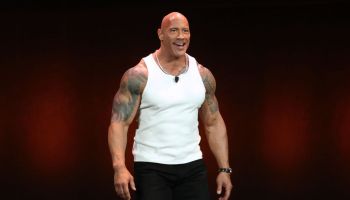Yelawolf, MGK and 50 Cent’s recent public gripes with Interscope illuminate how even some of the industry’s most successful rappers face frustrating roadblocks from the major labels.
In a recent interview, Yelawolf fired shots at the industry as a whole, expressing:
“You don’t really fuckin’ need a label anymore… you don’t need none of that shit.”
Is Yela right? Are the major labels really a dying breed? Perhaps he is, although the reality may be a bit more complex than may appear at first glance.
DETAILS: SAY IT AIN’T SO! Yelawolf Found Something In Common With Machine Gun Kelly
The majors are trying to maintain control over music in an age where everyone from the pizza delivery guy to your baby cousin are trying to push their free mixtapes online.
From delays in promotion, and resistance to their creative vision, to the pressures placed on them to drop that EDM-inspired radio single, rappers can experience a build-up of constraints while signed onto a major label that can leave them wanting to give the industry the finger and pursue a D.I.Y grind.
(Oh, and let us not forget the pernicious yet standard 360 record deals in which the labels collect upwards to 40 percent of all revenue an artist makes outside of music itself).
NEW MUSIC: Angel Haze Releases “Reservation” EP
With social media and an ever-expanding music journalism blogosphere, a thriving techno-infrastructure is providing rappers with innumerable platforms to promote and distribute their music themselves.
We have seen how rappers like Iggy Azalea, Odd Future, A$AP Rocky, and Big K.R.I.T. have deftly used YouTube and Tumblr to brand themselves and garner buzz large enough to incite a bidding war amongst the majors over who they would pen a deal with.
DETAILS: Odd Future Announces “Camp Flog Gnaw” Tour Dates
Although Kendrick Lamar and his Top Dawg Entertainment team built up a movement outside of the major label system, he admits that the D.I.Y model was simply not sustainable enough for him to continue without financial support of a corporate label.
And as we’ve seen with the aforementioned artists, many of the rappers that were once indie, end up signing with a major anyway.
The undeniable facts are that the majors are well-established machines who, because of the massive consolidation of media industries all around, have the colossal muscle to create global superstars.
PHOTOS: Lady Gaga Kicks It With Kendrick Lamar At Pitchfork Festival
At the same time, we also see hip-hop artists building their own machines.
Just look at Kansas City’s Tech N9ne, who has sold more than 1.8 million albums independently through his Strange Music empire.
Yet, this seems to be more of the exception than the rule.
Major labels are surely in crisis mode, late in the game to the digital music age, but best believe they are making their adjustments.
The blog writers are replacing radio as the gate keeping tastemakers to what up and coming artists actually break through the clutter to reach cyberspace fame. Many influential blog writers even consult major label A&R’s on potential signees.
So, although the internet has democratized rappers’ ability to thrive independently, it has not eluded a reality that exists even with artists with major label aspirations:
You have to be at the right place, at the right time, with the right gimmick, and connected to the right people. Talent, of course, is still optional.















